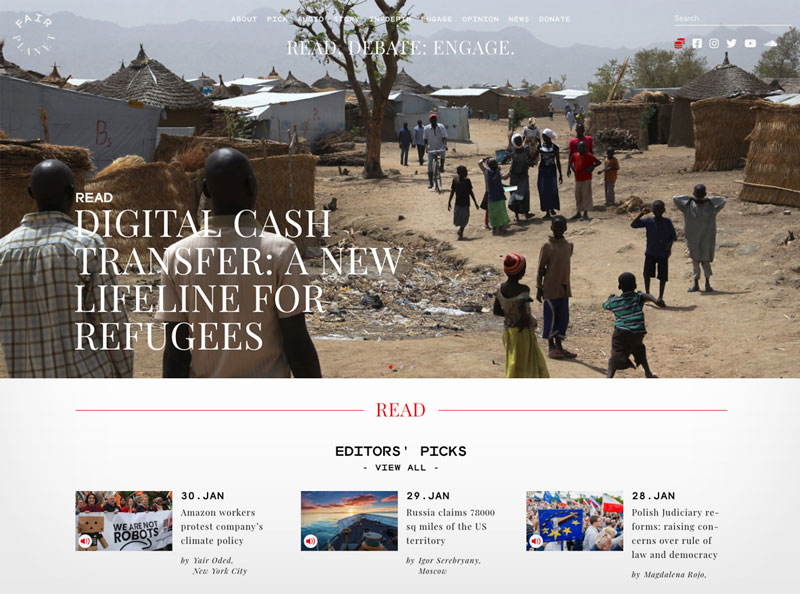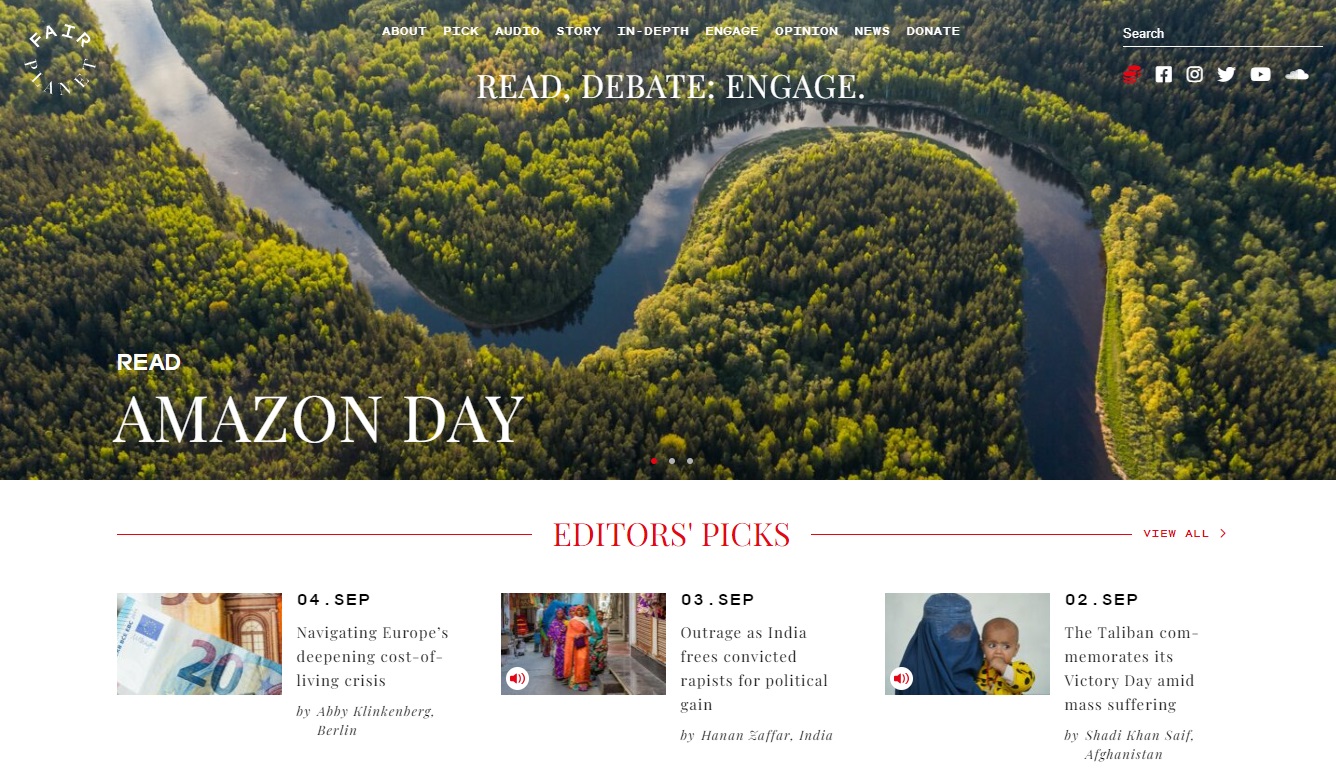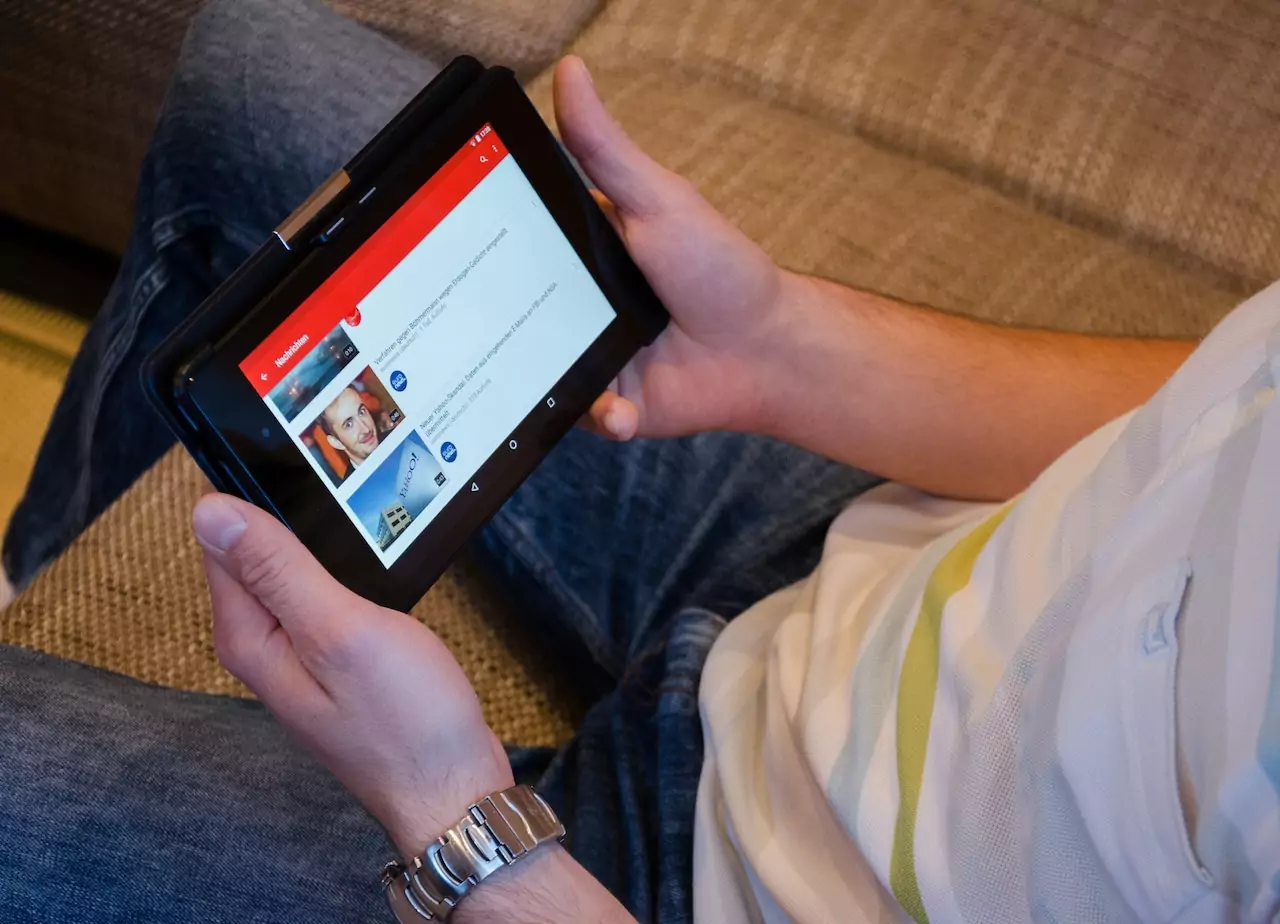
Mh: how are you retaining your audiences?
MS: We can see that the percentage of our returning audience is increasing, and we think this is due to their commitment to the cause FairPlanet stands for and serves. They seem to appreciate our value proposition of combining fact-based journalism and solution-oriented activism.
Mh: what are the key audience metrics you define success by?
MS: Global reach, audience engagement with our reporting and the positive impact we achieve through mobilizing our audience for the support of activism.
Mh: define what seo means to you these days. Are we talking keywords, page speed, engagement?
MS: An essential part of our work is to make human rights and environmental issues accessible to mainstream audiences. In that sense, SEO means to be where audiences are and to understand how they search for content.
During the last year, we worked a lot on performance improvements through which we made our site fit to be accredited by Google News. Another example is our content gap analysis through which we address what users want to know about human rights and the environment.
Last year we started collaborating with Type A Media‘s digital advisory team based in London, which helped us a lot in understanding and addressing search engine algorithms much better, which tremendously increased our search ranking and tripled our reach.
Mh: what’s your social media strategy, and how important is it for you to be present on these platforms? Have you seen any trends?
MS: Many of our visitors come through social media, mainly Facebook, where we have 150,000+ followers, or Twitter, where we have far fewer but the engagement is higher due to there being more professional followers.
Unfortunately, the newest trend we’re seeing and actually going through right now is a disturbing one: As a clumsy response to foreign interference, Facebook rejects most of our promoted content because of its political nature. As all our content is, of course, political, this creates a significant obstacle for us to reach our global audience.

Facebook’s algorithms regularly reduce our organic reach to fewer than 1,000 people, even though we have more than 150,000 followers. In contrast, promoted content often reaches more than 100,000. Considering their monopoly, we perceive this as a form of censorship.
When I explained this issue to Facebook’s Vice President of Policy Solutions in person at a conference in London last year he defended Facebook’s approach as an “agnostic” position. In other words they’re not taking sides. This is a very disappointing stance, harming so many small and medium sized media outlets and organizations, who work relentlessly in favor of democracy.
Twitter has also been giving us a hard time by not acknowledging our status as a cause-based organization. After months of patience though this has finally been recently recognized. In a time when social media is being flooded by extremist, far-right, hate-driven content, the principles of democracy are not being protected. In this regard, we think the social media ecosystem is broken.
Mh: a worrying issue that clearly hurts your traffic. So how do you drive engagement when readers do reach your site?
MS: We recommend our related content, but one particular aspect of this is unique and goes back to our claim: Read, Debate: Engage. That means we connect the issues explained in our articles with solutions, presented through campaigns, projects or at grassroots. In other words, we connect content with action – two different formats that complement each other. This sort of combination appears to be attractive to our audience.
Mh: do you work together with other publications in your vertical?
MS: Yes, we do content cooperations. Since our content is niche, we work with specialized outlets, which are concerned with similar topics.
Mh: would you describe your business as data-driven?
MS: Like any other media, we do our analytics to understand what our visitors read, how they navigate, how they engage with different types of content or where they come from.
Mh: could you shed a bit of light on your revenue model?
MS: We are a social enterprise – most of our financial resources come though large private donations on a regular, yearly basis. This year, we’ve enhanced them through launching Blockchain-based micro-donations in cryptocurrency. These micro-donations democratize our financial sourcing and come from readers who support our content on a voluntary basis. We also generate funds through collaborative long-term project work. For instance, we cooperate with a non-profit direct action organization on a conservation project in South Africa and Zimbabwe.
Mh: do you include sponsored, branded or affiliate content?
MS: We don’t do any of these. We do cooperate with other organisations and institutions though, co-producing content we couldn’t do on our own. We then mutually promote this content through backlinks and joint promotions through social media.
Mh: what’s your fastest growing area?
MS: Two years ago we began to produce our commentaries by our contributing editors from Berlin, Mumbai, Moscow, Kabul, Mexico, Sao Paulo, Nairobi and New York as audio tracks. In the beginning, we had very few listeners, but we kept going. This year we passed 1.5 million listeners – we think that’s a huge success. We’re working on a series of podcasts to build on that.
Mh: why do you think your model has been successful?
MS: To engage a broad audience with human rights and environmental issues is a challenge. We admire pioneers like Amnesty or Human Rights Watch or Greenpeace. However, their main work is of course advocacy and campaigning, rather than mainstream content. We position somehow in the middle as we combine reporting and activism and see ourselves as much as we can in a supporting role for such organizations and the vast number of activists and small organizations across the globe. The hybrid nature of FairPlanet as a medium and platform at the same time seems to hold a necessary niche.
Mh: from your own journey, what do you think other vertical publishers could learn?
MS: There are several factors, which seem to drive success for what we do. Of course, all credible outlets produce quality content, but our content is focusing on only two issues: human rights and ecological well-being of our Earth habitat. Although this seems to be a niche, it’s globally relevant but very local at the same time, as the issues we talk about are based on local research.
Content from our partners
Second, all our reporters are local, so they know the local cultural, social, political, environmental and economic contexts very well. Hence, local communities feel well understood and represented to a global audience. Also, we apply an equal pay policy for all our colleagues across the globe, regardless of their location, and we pay them immediately after submission. They feel that their work is valued and understand that we walk our talk, and they spread the word.
Mh: can you share some milestones with us?
MS: There have been certain quantitative milestones which have helped to push us further, such as:
- passing the threshold of 100,000 followers on Facebook in our fourth year.
- achieving 1,000,000 listenings of our audio commentaries after one year.
- gaining 500 single micro-donations after the first three months of launching our Blockchain-based solution on our platform.
- supporting more than 500 organisations through our community.
- by the end of last year reaching 1,000,000 web impressions and the same amount on social media per month.
Mh: which other publishers do you look for inspiration?
MS: There are a few of them: News Deeply produces topic-driven, in-depth and well-researched journalism. They covered the war in Syria and its devastating impact on civilians when many other outlets were lacking local resources. Screenshot Magazine is a progressive and innovative London based outlet that engages a millennial audience in tech, future and politics with an ethical twist. They also recently invited us to be on their advisory board.
The Intercept produces fearless investigative journalism. And of course, the New York Times is a benchmark for journalism we always watch. Jacobin and Africa is a Country provide focused, topic-driven content of a superb quality, embedded in excellent editorial layouts. And then there are other independent regional media like +972 Magazine, which produce good journalism against the odds within difficult circumstances.












